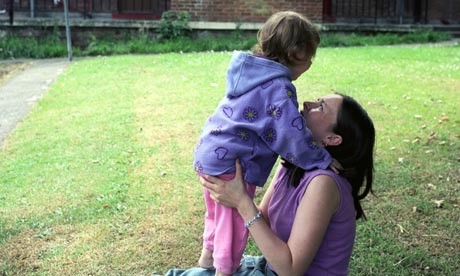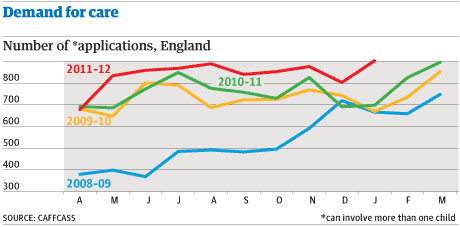- HOME
- PAIN NEW GDPR POLICY
- ABOUT US
- MEET THE VOLUNTEERS
- New Tab
- PAIN MISSION STATEMENT
- CONTACT US
- LINKS
- My Page
- Members
- Videos
- Forum
- Blogs
- Chat
- Photos
- slideshare documents
- PAIN CASES IN THE PRESS
- Slideshare family court
- PERCEIVED CHILD ABUSE
- SAFEGUARDING
- HUMAN RIGHTS
- TESTIMONIALS
- PAIN PODCAST ALISON
- SOUTHSIDE PODCAST ALISON
- SOUTHSIDE PODCAST 3
- PAIN PODCAST 4 ALISON
- PAIN PODCAST 5 ALISON
- SOUTHSIDE PAIN PODCAST
- BBC RADIO 4 ALISON
- Alison BBC Radio Leicest
- Accused Mum sets up grou
- Parents accused
- False allegations
- CLEAR MY NAME
- MY CASE
- Branded Mum bounces back
- MONTHS OF TORMENT
- Heartache i want my chi
- PARENTS JOY
- PAIN CASE CONFERENCE NOT
- PAIN ADVICE SHEET
- Data protection LETTERS
- MY VIDEO
- FLORENCE BELLONE SPECIA
- CHRIS SMITH PODCAST
- PUBLIC LAW OUTLINE
- FAMILY COURT JUDGMENTS
Parents Against Injustice
Parents Against Injustice
Record number of children in England are taken into care
Record number of children in England are taken into care
Numbers have been rising since 2008 and Baby P case, with up to 10,000 predicted to be placed in care this financial year
- Hélène Mulholland and agencies
- guardian.co.uk, Thursday 9 February 2012 10.11 GMT

The number of children taken into care in England has hit a record high.
Numbers have been rising since late 2008 and the infamous Baby P case involving the death of a young child while on the at-risk register in London.
Last month, local authorities made 903 applications to protect youngsters from abuse or neglect – the highest figure since the Children and Family Court Advisory and Support Service (Cafcass) was set up in 2001 to look after the interests of children involved in court family proceedings.
The agency said the increase makes it more difficult to give vulnerable young people the protection they need.
Between April 2011 and last month, Cafcass received 8,403 new applications. This figure is 12.4% higher when compared with the same period last financial year.
If the figures climb at a similar rate to April, the figure will reach 10,000 for the financial year.
 Graph: care applications in England. Image: GuardianAnthony Douglas, the Cafcass chief executive, said agencies needed to factor in these much larger increases into their planning.
Graph: care applications in England. Image: GuardianAnthony Douglas, the Cafcass chief executive, said agencies needed to factor in these much larger increases into their planning.
"Volatility and variation between local authorities is one thing, and we are used to that," he said, "but it is the double-digit increase that makes it harder for the sector to gear up and to ensure the relevant resources are available for all children.
"Nearly every child involved needs love, care and therapy, either back home or elsewhere. All agencies need to factor in these much larger increases into their planning systems, resource allocations, workforce development strategies and service contracts, so that the most vulnerable children in the country continue to receive strong public services.
Douglas added: "Of course, some authorities show significant decreases so best practice in demand management is also important to transfer.
"However, the profile of children entering the system is unwavering - an unquestionable need for care for the vast majority, and the urgent need to be given their normal childhood back and to be allowed to develop in a loving and supportive family environment."
Christina Blacklaws, a lawyer specialising in the field, said local authorities may be "overly cautious" and potentially remove children from the family home who could safely remain at home with support, because of fears of another Baby P situation.
She told the BBC Radio 4's Today programme: "What we need to recognise is that doing this may damage children as much as leaving them in an unsafe situation so social workers need to not allow their own anxieties about the tragic circumstances around the Baby Peter case to cloud their professional judgment about what may be in the best interest of an individual child."
Commenting on the figures, Matt Dunkley, president of the Association of Directors of Children's Services, said the rise was due to a better understanding of the damaging impact of neglectful parenting, particularly in relation to drug and alcohol abuse, and a focus on intervening earlier to try and prevent it.
There was lots of evidence of children who have been temporarily taken into care and returned home where this didn't work, he said. "I do think care works on the whole, and the cohort that we're dealing with in the care population is by definition the most damaged so the outcomes are not surprising."
Dunkley said the system needed to provide both care provision and focused early intervention.
"We need a system that can react to crises which can't be solved and we need effective early intervention and in my view effective early prevention does two things; it quickly assesses the capacity of parents to improve their parenting and if they're able to do that it gets the support services in to help them do that and keep the child safely at home, and where they don't have that capacity it removes the children very quickly to minimise the damage."
He added: "We do need to change the cost profile to spend more on early intervention and my council this week voted to invest a large amount of council funding to change the model to do just that. I think increasingly councils will do that – they will put big money up front for preventative services to save money later on"
http://www.guardian.co.uk/society/2012/feb/09/record-children-england-care-babyp?CMP=EMCSOCEML657
© 2025 Created by Alison J Stevens.
Powered by
![]()

You need to be a member of Parents Against Injustice to add comments!
Join Parents Against Injustice